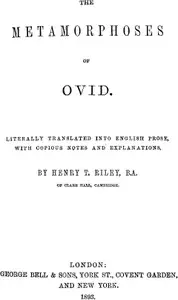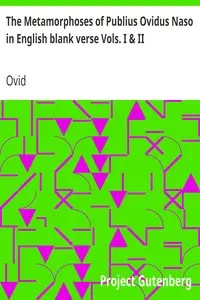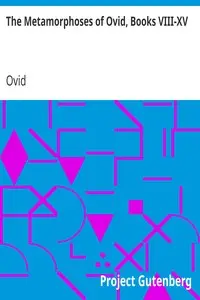"The Last Poems of Ovid" by Mark Bear Akrigg is a scholarly edition and commentary of the fourth book of the "Epistulae ex Ponto," a collection of poetry written by the renowned Roman poet Ovid. This edition, which signifies ongoing interest in classical literature, was published in the early 21st century but revisits works originally composed during Ovid's exile in the early days of the Roman Empire. The book sheds light on Ovid's reflections and correspondence during a tumultuous period, offering insights into both his personal struggles and the social context of his time. The opening of this edition outlines the context of Ovid's exile, which began in AD 8 when he was banished from Rome to Tomis. Akrigg introduces the significance of the fourth book of the "Epistulae ex Ponto" as a work composed at a time when Ovid grappled with the repercussions of his past while continuing to produce poetry. He specifically discusses the structure and themes of the poems, highlighting how Ovid sought to maintain his poetic identity while addressing various addressees, from influential political figures like Sextus Pompeius to fellow poets. The edition emphasizes the personal nature of Ovid’s letters, revealing a mix of lamentation and artistic expression that characterizes this late stage of his career. (This is an automatically generated summary.)

The Last Poems of Ovid
By Ovid
"The Last Poems of Ovid" by Mark Bear Akrigg is a scholarly edition and commentary of the fourth book of the "Epistulae ex Ponto," a collection of poe...
Publius Ovidius Naso, known in English as Ovid, was a Roman poet who lived during the reign of Augustus. He was a younger contemporary of Virgil and Horace, with whom he is often ranked as one of the three canonical poets of Latin literature. The Imperial scholar Quintilian considered him the last of the Latin love elegists. Although Ovid enjoyed enormous popularity during his lifetime, the emperor Augustus exiled him to Tomis, the capital of the newly-organised province of Moesia, on the Black Sea, where he remained for the last nine or ten years of his life. Ovid himself attributed his banishment to a "poem and a mistake", but his reluctance to disclose specifics has resulted in much speculation among scholars.












